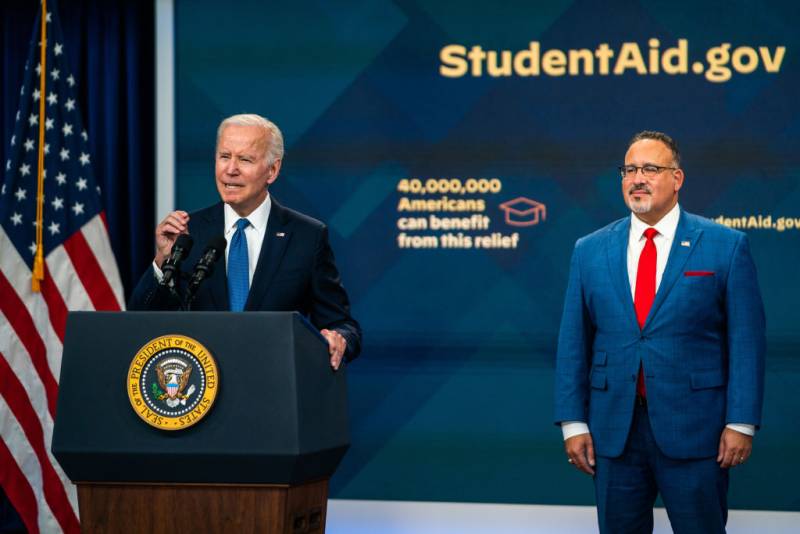The Congressional Budget Office has said the program will cost about $400 billion over the next three decades.
More than 26 million people have already applied for the relief, with 16 million approved, but the U.S. Department of Education stopped processing applications last month after a federal judge in Texas struck down the plan.
What are the court cases blocking the student debt relief program?
The Texas case is one of two in which federal judges have forbidden the administration from implementing the loan cancellations.
In a separate lawsuit filed by six states, a three-judge panel of the 8th U.S. Circuit Court of Appeals in St. Louis also put the plan on hold. That's the case that will now go before the Supreme Court.
The moratorium on student loan payments had been slated to expire Jan. 1, a date Biden set before his debt cancellation plan stalled in the face of legal challenges from conservative opponents.
The new expiration date is 60 days after the legal issue has been settled, but no later than the end of August.
Challenges to the plan were brought by conservative attorneys, Republican lawmakers and business-oriented groups who have asserted Biden overstepped his authority in taking such sweeping action without the assent of Congress. They called it an unfair government giveaway for relatively affluent people at the expense of taxpayers who didn’t pursue higher education.
Missouri Attorney General Eric Schmitt, a Republican, said in a statement following the high court order that the Biden plan “would saddle Americans who didn’t take out loans or already paid theirs off with even more economic woes.” Missouri is one of the six states that sued to block the plan, along with Arkansas, Iowa, Kansas, Nebraska and South Carolina.
The program's path to the Supreme Court
The Biden administration has argued that the loan cancellations are legal under a 2003 law aimed at providing help to members of the military. The program is a response to “a devastating pandemic with student loan relief designed to protect vulnerable borrowers from delinquency and default,” the Justice Department said in court papers.
The law, the HEROES Act, allows the secretary of education to “waive or modify any statutory or regulatory provision applicable to the student financial assistance programs ... as the Secretary deems necessary in connection with a war or other military operation or national emergency.”
In putting the program on hold, the 8th Circuit panel said there was little harm to borrowers because repayments have been suspended. Allowing the cancellations to proceed before a definitive court ruling would have had an “irreversible impact,” the appeals court said.
U.S. District Judge Mark Pittman, an appointee of former President Donald Trump, issued a more sweeping ruling in the Texas case, finding that such a costly program required clear congressional authorization.
